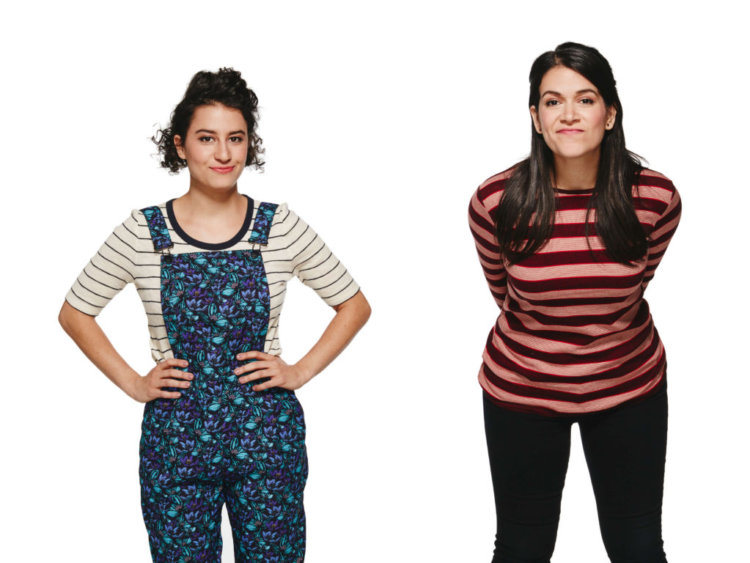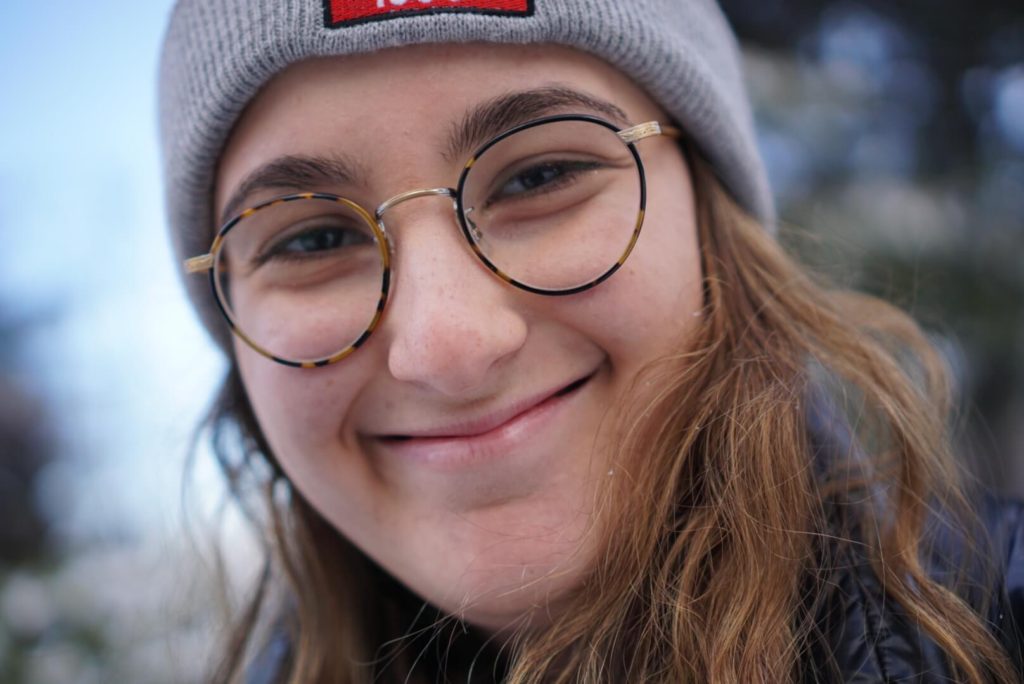
[Photo Credit: Patrik Giardino]
The other night, my friends Abbi and Ilana had the craziest night on St. Mark’s Place. As they were on their way to one of those classic East Village, cash-only restaurants, they stopped and bought tasteless tourist t-shirts – Abbi’s said “Challah Back” and Ilana’s said “Female Body Inspector” – before embarking on an adventure that ended with dollar pizza. I wanted to join them in real life, but instead, I joined them by hitting play on my laptop and fell into the deep dark Broad City hole where they live.
Ilana and Abbi aren’t actually my friends in real life, but they definitely feel like they could be. More than any other show, Broad City captures what it’s like to be a millennial, especially one living in New York City, and it accomplishes that through the fleshed out, quirky and relatable Abbi and Ilana.
Broad City, first created by Abbi Jacobson and Ilana Glazer as a webseries, shows a millennial New York that we recognize well: populated by cool yet dorky characters, in a culture where female sexuality and even promiscuity, as well as religion and political activism, are not just acceptable, but accepted. My friends and I don’t watch Broad City because we’re looking for uber cool, insanely successful New Yorkers. We watch it because they are like us, as artists, as students, as Jews, as millennials in New York City, as members of the queer community. Like us, they don’t really have their lives together; they experiment and push the confines of gender and sexuality, and embrace Judaism – or other faiths – through its cultural aspects. They give us a sense of comfort in seeing ourselves reflected while also giving us a great laugh. And they walk the same streets that I do, in a fictionalized version of my NYC neighborhood.
Season three’s finale, “Jews on a Plane,” set the bar pretty high – around 40,000 feet high. But bad airplane-altitude jokes aside, after the first three episodes of the new season, I am emotionally invested in Abbi and Ilana more than ever. Season four’s premiere showed us who Ilana and Abbi were before they met – an NYU student and an unemployed artist – and saw what they were like in the absence of the identities we have come to associate with them. Who was Ilana without her trademark curly hair? Who was Abbi with bangs? Who were both Abbi and Ilana without identifying as the badass Jewesses we have come to know and love? And who – the show asks through a “Sliding Doors” plot device – might they have been without each other?
Broad City redefines the stereotypes associated with Jewish women, which they talk more about here. Ilana’s choice to identify herself as a Jewess reinforces her pride and confidence in both her religion and gender. While Broad City doesn’t feature Judaism as the main plot point in most episodes (OK, aside from ”Jews on a Plane”), their strong cultural connection to Judaism is lightly drizzled into each episode through occasional drops of Yiddish and boundaryless familial dysfunction (the shiva episode shows a perfect depiction of the latter).
Abbi and Ilana need each other in order to be the best version of themselves. As Ilana said in a behind-the-scenes Comedy Central clip, “Some people you are just destined to meet and fall in love with.” Part of the reason Broad City is so popular is because of how rawly it depicts friendship. (I would not limit this to “female friendship,” because I believe close friendship is genderless)
The power of close friendship is that it causes people to grow together for the duration of the friendship, whether that duration be lifelong or a year long. A good friend will bring out your strengths and encourage you in a way that may be hard to accomplish independently. In your twenties, platonic friendships are more important than romantic relationships, and are often codependent, especially with technology enabling constant connection. At times, the friendship does teeter and crosses the line to the unhealthy point, but that’s what true close friendship is, especially as a young adult. It’s not always healthy and perfect – it’s messy. Because that’s our life. And that’s why millennials love Broad City.
We all have our crazy adventures, but we usually do what we do because we love each other. On Broad City, the love is very clear, and any crazy antics that ensue happen as they try to help each other. Even when their nights turn to shit, like in that St. Mark’s episode when they end up on the sidewalk eating dollar pizza, they don’t mind because they are with each other.
In fact, the night I wrote this, that’s exactly how my night ended: eating dollar pizza on St. Mark’s from the very same dollar-pizza place featured in that Broad City episode, with my best friend. That night didn’t go exactly as we’d planned, but I wouldn’t have traded it for anything. And I bet neither would Ilana and Abbi: they know it’s not where you end up that matters, it’s who you’re with.
 Erica Snyder is a Dramatic Writing student at NYU Tisch School of the Arts. She is working on a novel and too many screenplays to count! When not in class, you can catch her taking photos around New York City. You can follow her on Instagram: @ericas112 or @esnyderphoto.
Erica Snyder is a Dramatic Writing student at NYU Tisch School of the Arts. She is working on a novel and too many screenplays to count! When not in class, you can catch her taking photos around New York City. You can follow her on Instagram: @ericas112 or @esnyderphoto.


Grok Nation Comment Policy
We welcome thoughtful, grokky comments—keep your negativity and spam to yourself. Please read our Comment Policy before commenting.